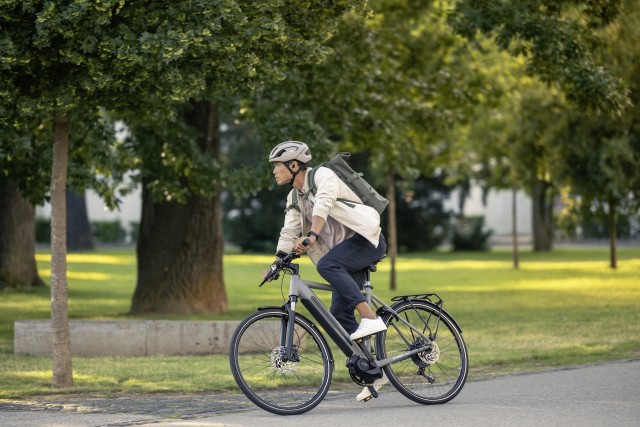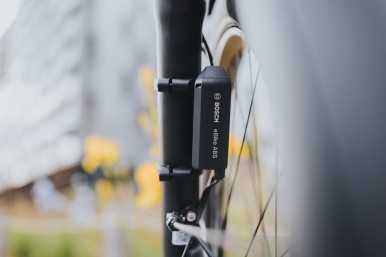Electrification, automation, personalisation and connectivity are the future of mobility: Bosch eBike Systems will showcase the role eBikes will play in this at the IAA Mobility in Munich from 7 to 12 September 2021. "The eBike is a crucial component in the future mobility mix", says Claus Fleischer, CEO of Bosch eBike Systems. “It enables us to relieve city traffic and reduce the burden on the environment. People reach their destination faster, in a manner that is healthier and more sustainable – all while enjoying the freedom and fun of riding."
Bosch eBike Systems at the IAA Mobility – Trade Fair:
Trade fair: Bike hall B5, booth B99 as well as hall B3, booth C30
Blue Lane Micro: Brienner Strasse
Open Space: Königsplatz and Odeonsplatz
Bosch eBike Systems is shaping the future of eBike mobility with innovative products and digital services ranging from highly efficient drive systems to the first production-ready ABS for eBikes and Connected Biking solutions. On the daily routes through the city, on leisurely rides through the countryside or for sporting adventures in the mountains: Bosch eBike Systems offers eBikers the right drive system (drive unit, battery, display, and app) for every requirement and every area of use, ensuring a unique riding sensation. Today, more than 100 of the world's leading bicycle brands trust the perfectly coordinated, modular product portfolio. As an independent division within the Bosch Group, Bosch eBike Systems also makes use of the Group's technology and manufacturing expertise. For healthy, safe and sustainable mobility that is fun.
For more information please visit www.bosch-ebike.de
The Bosch Group is a leading global supplier of technology and services. It employs roughly 418,000 associates worldwide (as of December 31, 2024). The company generated sales of 90.3 billion euros in 2024. Its operations are divided into four business sectors: Mobility, Industrial Technology, Consumer Goods, and Energy and Building Technology. With its business activities, the company aims to use technology to help shape universal trends such as automation, electrification, digitalization, connectivity, and an orientation to sustainability. In this context, Bosch’s broad diversification across regions and industries strengthens its innovativeness and robustness. Bosch uses its proven expertise in sensor technology, software, and services to offer customers cross-domain solutions from a single source. It also applies its expertise in connectivity and artificial intelligence in order to develop and manufacture user-friendly, sustainable products. With technology that is “Invented for life,” Bosch wants to help improve quality of life and conserve natural resources. The Bosch Group comprises Robert Bosch GmbH and its roughly 490 subsidiary and regional companies in over 60 countries. Including sales and service partners, Bosch’s global manufacturing, engineering, and sales network covers nearly every country in the world. Bosch’s innovative strength is key to the company’s further development. At 136 locations across the globe, Bosch employs some 87,000 associates in research and development.
Additional information is available online at www.bosch.com, www.bosch-press.com.








